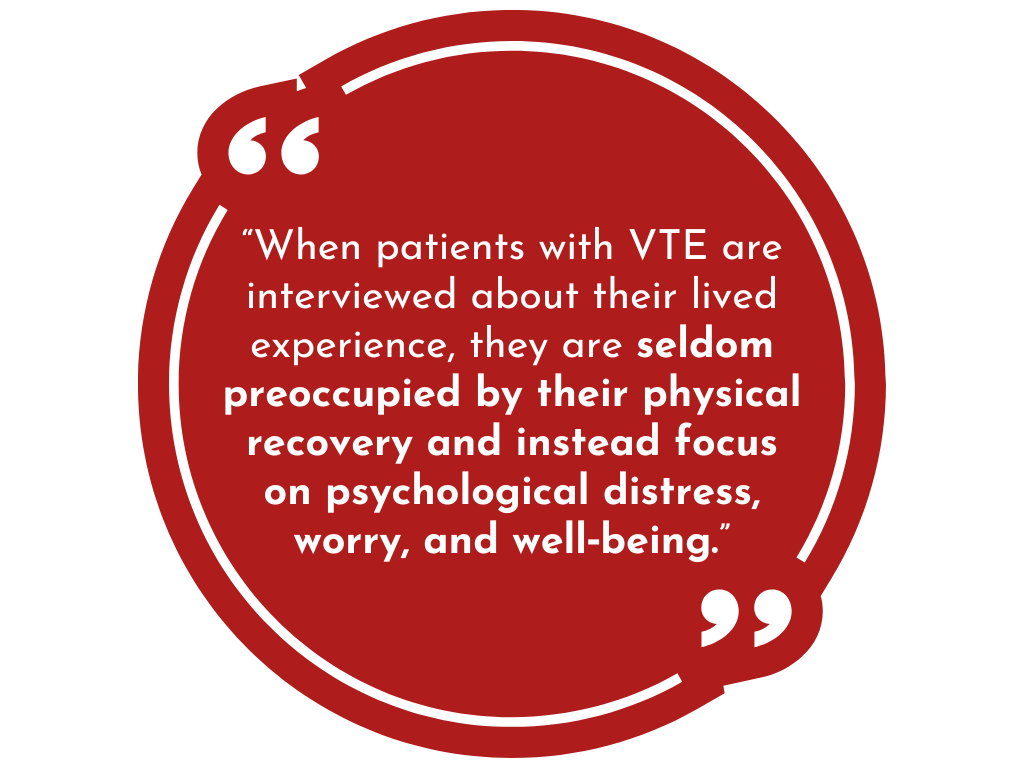When I started my recovery journey, I lacked the self-confidence to be heard and seen as a co-partner in my care.
A lot of those initial visits became more confusing with some doctors over-stepping the scope of their specialty, contradicting other doctors on my care team.
That made my recovery harder than it had to be. Moving my manageable post-clot PTSD down a crippling dark hole of overwhelming anxiety and stress.
The follow up that forced me to become my own advocate
Shortly after my second pulmonary embolism, I followed-up with the hematologist who had managed my first VTE.
As I sat in his office, he abruptly announced that he was changing my anticoagulant (blood thinner) from Eliquis to Xarelto.
“Eliquis doesn’t work for obese people.”
Except for the “clicky-clack” of a computer keyboard in the background, the entire room went silent as my mind took over.
I had just had an ultrasound on both legs with my vascular team. The clots had already resolved.
No new blood clots were noted.
The PEs in my lungs were improving. My breathing felt easier. My heart rate was returning to normal.
My experience and body were telling me that recovery was going well based on how I was feeling.
But without looking up from his computer screen that hematologist planted the seed of doubt based solely on my weight – even though the current science supports the safety and effectiveness of Eliquis for patients struggling with obesity.
The walk back to my car was filled with tears and panic, convinced that the recent ultrasound missed another clot and I was one step away from dropping dead in the parking lot.
The impact of physician word choice is striking and paints a picture of physicians so immersed in disease management that they cannot step back to see a patient who does not understand what is happening and who is being excluded from participating in the conversation.
PMID: 35106433
the doctor that changed how I approached my blood clot recovery
Ask me who the MVP was on my care team, and I would say my vascular surgeon.
He treated both of my VTEs and is an expert in both skill and patient-centered care.
It was a no brainer for me to reach out to him for guidance after that Hematology visit.
He reassured me that nothing was missed on the scans and Eliquis was doing it’s job.
He also helped me find a new hematologist that saw beyond just a fat person.
You are the expert of and in your body.
It’s why we stress the importance for women to press the knowledge of healthcare providers in order to make the best decisions for their individual health.
